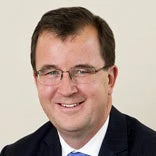Making a difference in today’s multifaceted world is as challenging now as it was in 1944 when the Bretton Woods institutions were formed. When I became the Managing Director and World Bank Group CFO in March 2013, it was the extraordinary mission to end global poverty that challenged and attracted me, just as it did for many of those who were recruited before me. Contributing to global challenges at time when our world is changing so rapidly is, however, quite different from what I had imagined.
I knew that the Bank Group was capable of great things despite post-financial crisis tensions and political and cultural complexities. Based on my experience in both public and private finance, I also knew that the Bank’s balance sheet would be a vital contribution to the Bank Group’s increased financial capacity if leveraged differently. Under President Kim’s leadership, my first two years were focused on ensuring that the Bank Group was as solid a financial institution as it is a solid development institution.
Today, the Bank Group has a stronger enhanced financial platform aimed at achieving a significant increase in lending capacity over the next 10 years. The measures we took proved that innovative finance has a pivotal role to play in tackling development issues. And, as those involved in international finance come together over the next few months to discuss how development might be financed going forward, this will become increasingly apparent. Domestic public resources, private finance, multilateral, regional and national development banks, the IMF and others must continue to build on their complementarity if we are to succeed in implementing the proposed Sustainable Development Goals. We are all in the same boat; if we remain in isolation, we cannot provide the solution.
There is a tremendous need for atypical combinations of global, regional, national and private finance. Exploring how our respective business models might be used to create more financial capacity is just one element of future development financing. At next month’s World Bank Group and IMF Spring Meetings, it will be a key topic of discussion. Moreover, the upcoming 3rd Conference on Financing for Development (July 13-16 in Addis Ababa) could be a turning point.
Let’s not forget that the international development toolbox contains many unique tools. It is important to use these multiple tools together, in the right combination at the right time on a given situation to succeed. It is smart practice to add new tools, new skills as circumstances change. And, I would be remiss if I did not mention the Asian Infrastructure Investment Bank – a very interesting example of a new tool being designed. The Bank Group continues to have a significant role, adding the many ingredients at our disposal – knowledge, technical skills, financing, practical and historical experience – into the problem-solving toolbox.
I have learned a great deal since joining the World Bank Group, both professionally and personally. My colleagues’ depth of commitment and passion for the work is inspiring, my experience humbling. I believe that the Bank Group is an amazing collection of interconnected institutions. We could not recreate it; it was truly part of the genius of post-war reconstruction. The difference today, however, is that we are not alone as we were in 1944, but a key hub in a unified network.
This blog post originally appeared on LinkedIn.


Join the Conversation